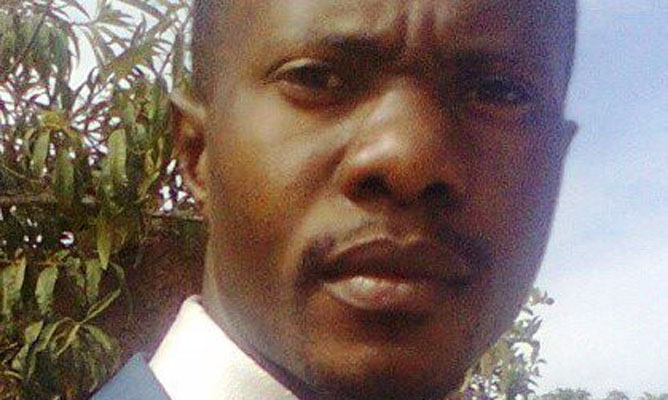
CALLS continue to grow louder for opposition forces seeking to bring about a democratic Zimbabwe to embrace technology as the clock ticks towards the crunch 2018 elections.
guest column: Learnmore Zuze
It is, however, imperative, that this call be understood in its proper applicable context. Online and offline political activism are two distinct things; one, at most, merely serves to whip up political emotions, while the other can possibly transmute into real votes that can be counted in the ballot.
As they say, talk is cheap, but it is the demonstration of impact that matters. Does social media demonstrate impact? Will it result in political leverage apart froms venting frustrations against the national leadership?
The tendency is to generalise and make it appear as though social groups and social networks can bring about a revolution in a country characterised by nascent democracy because this is hardly the case.
Social media, in its varied forms, including social groups, will neither substitute the necessary ground work nor transform Zimbabwe in the desired democratic direction we all seek. Social media cannot take the place of face-to-face interaction in confronting-and — ultimately transforming — the structures of social, political and economic power.
Just like how family or church groups can fall to abuse by individuals with highly developed psychological low self-esteem, most social media activities actually serve to attenuate the real fight for democracy. They become a divisive tool in the process.
It has been shown, time and again, that social media is easier to destroy through infiltration. States have tried to keep pace with technological advances spying prodigiously online, monitoring and influencing activities in activists’ groups.
- Chamisa under fire over US$120K donation
- Mavhunga puts DeMbare into Chibuku quarterfinals
- Pension funds bet on Cabora Bassa oilfields
- Councils defy govt fire tender directive
Keep Reading
The often disruptive and deceptive nature of social media is that it gives people a sense of movement; a sense of direction yet nothing, politically, on the ground transforms. Many will recall the Baba Jukwa spectacle that took off like a whirlwind; the Facebook page of this phantom character set and broke records; people couldn’t get enough of it.
Numbers increased with the passage of every second. For a moment, Zimbabweans thought they had struck it. Exposés of underhand government officials corrupt dealings and political gossip brought a sense of making headway. With the juicy news, there was an increased sense of activity and progress, but when Zimbabweans woke up, the election had been lost and the phantom gone.
The cruel reality stood and stared at them. True, social media has fundamentally changed the way politics work. Nothing stays hidden for a long time these days. Even the decades-old monopoly of ZBC, the national broadcaster, has been crippled by the social media revolution yet still social media must not be misconstrued to be the ultimate instrument in politics. To rely on groups or social media is to lose sight of the complete picture.
Hijacked by social media hyenas, social groups and popular pages often lose a sense of direction, resulting in calculated further splits. At any level, it ends up dividing people instead of fostering unity. The new revolutionary phenomenon, namely social media, taking the form of Facebook, Whatsapp and Instagram, among many others, has brought with it a ton of good and, as well, a load of undesirables.
At any rate, social media has become influential; but does it achieve the ends? This social media activism entails people posting messages or co-ordinating political activities from the comfort of blankets or homes. As mentioned before, we cannot, at the same time, totally undermine the influence of social media, but it takes much more to build a country, a church or any group.
Social media is not the core, but must act in a complementary role to real activities on the ground. Nothing can take the place of the proper toil and labour aimed at achieving sound governance and democracy of any nation.
Most political social groups and popular pages, in essence, merely form talk shops where, again, on display, people with a messianic complex and those with degrees in insulting battle it out to the detriment of substantial issues.
Resultantly, nothing in the direction of growth is achieved. The trouble with social media is that it ends up failing on its supposed purpose if it doesn’t deceive people.
The opposition in Zimbabwe ought to firmly grasp that campaigning to real people across the country cannot be supplanted by social media. Folk in rural Zimbabwe can never be charmed by the hyped social media. Even a significant number of urban dwellers, in particular the old guard, cannot be effectively reached through social media.
Opposition must be wary of the lure of social media; they will yet again wake up when all is gone. Social media is about one of the most deceptive things there is in the world of politics. It is not the figures of thousands liking a page that gets to vote. The number of Facebook “likes” never transmuted into votes. The other obvious desirable of social media lies in its power to “name” and “shame”, but is this the ultimate point of activism? Hardly! People are seeking good governance and that is achieved by proper structures, well organised and co-ordinated activities.
The opposition would do well to ensure the scales are well balance and social media come in an assisting role to real political activism.
Learnmore Zuze is a law officer and writes in his own capacity. E-mail: [email protected]











